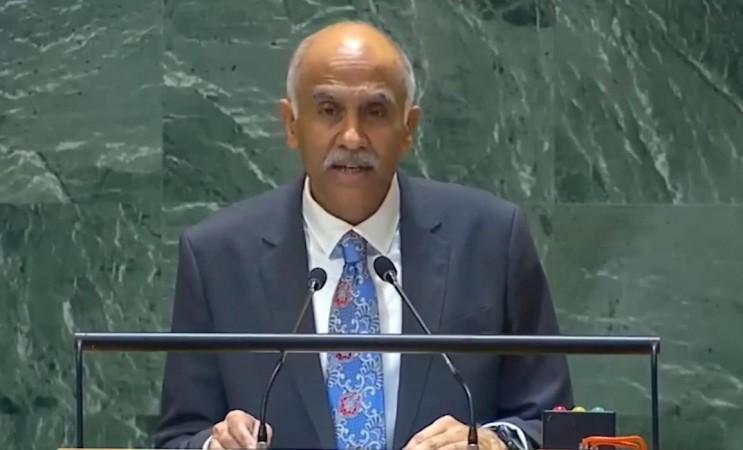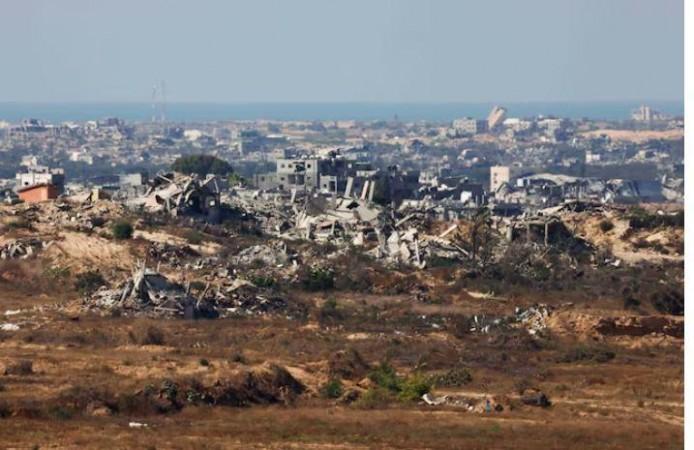
India's Permanent Representative to the United Nations, P. Harish, urged for a global response to match the ambitious commitment to fight terrorism, as outlined in the Pact for the Future by world leaders. This call was made in the context of emerging new theaters of conflict, such as cyber, maritime, and space, which are increasingly posing serious threats to global peace and security.
The Pact for the Future, adopted at the Summit of the Future, makes one of the most unequivocal declarations on terrorism, stating that all terrorist acts are criminal and unjustifiable, regardless of their motivation or how their perpetrators may seek to justify them. This is a significant stance as it undercuts attempts by some countries, including Pakistan, to blur the definition of terrorists by claiming that some can be considered "freedom fighters". This has been a major obstacle in the adoption of the Comprehensive Convention on International Terrorism (CCIT), proposed by India 28 years ago. Harish emphasized the need for urgent, unified action against terrorism, highlighting that the global action must now match the global ambition. He also spoke of India's leading role on behalf of the Global South by amplifying its voice in the contributions to the framing of the Pact, making it more "human-centric."
The Pact aligns with India's 'Vikst Bharat@2047' vision, which aims to make India a developed nation by the centenary of its Independence. Harish stated that while prioritizing sustainable development, efforts were made to ensure that human welfare, food security, health security, energy security, and climate finance are also addressed. He cautioned that evasion of climate action responsibilities by developed nations undermines the growth prospects of developing nations. Harish also recalled Prime Minister Narendra Modi's statement in his address to the Summit that reform is the key to the UN's relevance. However, he criticized the Pact for falling short on reforming the Security Council. He argued that the Pact's chapter on 'Transforming Global Governance' was not ambitious enough and did not reflect the views of the majority of UN members calling for the expansion of both non-permanent and permanent members.

The inputs to the Pact from the Inter-Governmental Negotiations for Council reform did not go far enough in addressing the critical issues related to UN Security Council reforms and expansion. It also did not stress holding text-based negotiations with a fixed time frame that the majority wants. A small group of countries led by Italy and including Pakistan are blocking the adoption of the text and lobbied against its mention in the Pact. Harish further stated that more needs to be done to strengthen the role of developing nations in the governance of international financial institutions and to address their debt problems. The declaration of the G20 nations adopted under India's presidency last year converged with the Pact on some key principles such as making the international financial system more inclusive, sustainable, and resilient, while advocating for stronger, more democratic global financial institutions.
This call for global action against terrorism and the need for reform in global governance resonates with historical events where nations have come together to address global challenges. For instance, the formation of the United Nations itself in 1945 was a response to the atrocities of World War II, with the primary aim of preventing future wars and promoting international cooperation. Similarly, the adoption of the Paris Agreement in 2015 was a significant step towards global action against climate change. The call for global action to match the ambitious commitment to fight terrorism and the need for reform in global governance is a reflection of the evolving challenges in the international arena. It underscores the need for collective action and cooperation among nations to address these challenges effectively. The success of such efforts, however, will largely depend on the willingness of nations to set aside their differences and work towards a common goal for the betterment of humanity.















